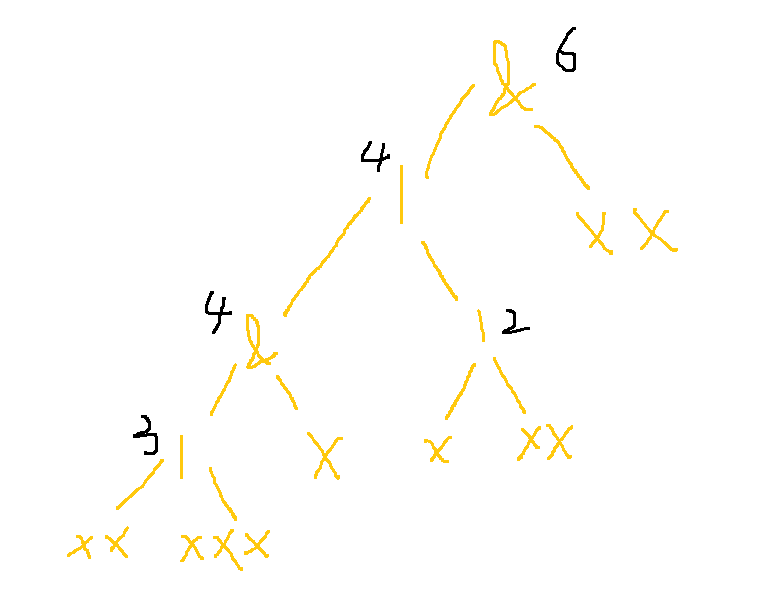原题链接:正则问题
题目描述
考虑一种简单的正则表达式:
只由 x ( ) | 组成的正则表达式。
小明想求出这个正则表达式能接受的最长字符串的长度。
例如 ((xx|xxx)x|(x|xx))xx 能接受的最长字符串是: xxxxxx,长度是6。
输入格式
一个由x()|组成的正则表达式。
输出格式
输出所给正则表达式能接受的最长字符串的长度。
数据范围
输入长度不超过100,保证合法。
输入样例1:
((xx|xxx)x|(x|xx))xx
输出样例1:
6
思路
有一说一,递归真是艺术
学到了一种分析方法:画树
对于这道题,可以画一个递归树
以此为例子
((xx|xxx)x|(x|xx))xx

那么如果根据这个来写递归呢
其实,括号里面就是一层递归,遇到左括号就下一层,遇到 ‘|’ 也忘下一层递归,当然,要记得跳过 (,),|
时间复杂度
O(n)
C++ 代码
#include <iostream>
#include <cstring>
using namespace std;
string str;
int k;
int dfs() {
int res = 0;
while(k < str.size()) {
if(str[k] == '(') { // 处理 (.....)
k ++; // 跳过左括号
res += dfs();
k ++; // 跳过右括号
}else if(str[k] == '|') {
k ++; // 跳过 '|'
res = max(res,dfs());
}else if(str[k] == ')') break;
else {
k ++;
res ++;
}
}
return res;
}
int main()
{
cin >> str;
cout << dfs() << endl;
return 0;
}

